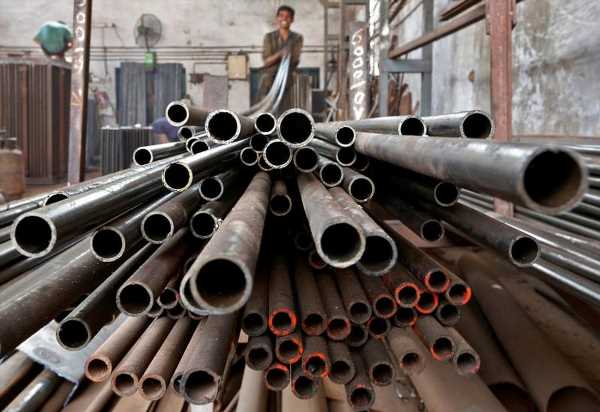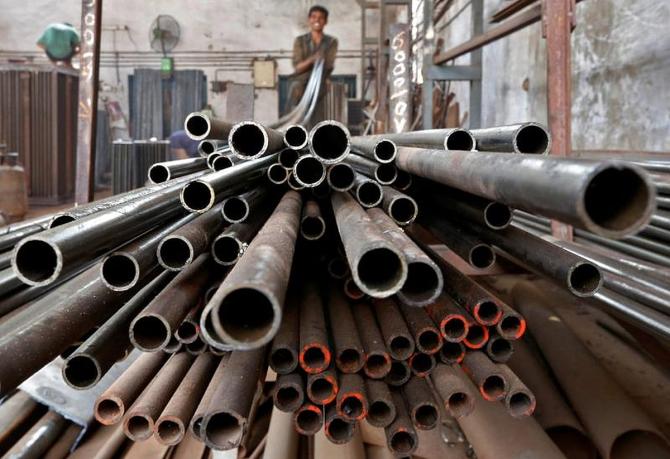A primary producer said that the prices would be raised in tranches this month and the total increase could be Rs 6,000 a tonne.
Amid the noise around rising steel prices, the rally continued in the new year with some companies increasing prices by Rs 1,000-2,400 a tonne and indicating more hikes in the coming weeks.
A primary producer said that the prices would be raised in tranches this month and the total increase could be Rs 6,000 a tonne.
“The first tranche is already effective. We have increased hot rolled coil prices by Rs 1,500 a tonne and rebar by about Rs 2,400 a tonne,” he said.
Jindal Steel & Power (JSPL) has increased prices by Rs 1,000-1,500 a tonne.
V R Sharma, managing director, said that the market was good, but prices would stabilise if NMDC kept its iron ore prices at the same level.
The buoyancy in the market was reflected in JSPL’s production numbers released on Monday.
The company recorded its highest ever production and sales in December; production increased 20 per cent year-on-year to 1.93 million tonnes in Q3 while sales increased 12 per cent (Y-o-Y) to 1.88 million tonnes in the same period.
Other major producers, too, are expected to come out with a good showing in the third quarter.
Some companies, however, were waiting for NMDC’s move on prices before taking a call on the quantum of increase.
“We will decide this week,” said a producer.
Since India entered the unlocking phase, steel prices have been on a continuous uptrend.
Sharma explained that there was a shortage of long products as secondary producers that account for about 40 per cent of the production were not able to come up to the right level of production.
“They are producing 30-31 per cent which is being made up for by the six major producers,” he said.
The increase in prices, however, has caused much discontent among user industries.
Raw materials industry, too, has raised the matter.
About a week back, the Indian Steel Association (ISA) wrote to the Prime Minister’s Office (PMO), explaining the reasons behind the price increases undertaken by the industry.
Primary among them were that international prices had moved from a bottom of $397 a tonne to $750 a tonne due to temporary shortage in global supplies and a shortage of iron ore, a key input material.
The industry also highlighted evacuation challenges with respect to iron ore and said that iron ore export competes with the movement for domestic use.
The ISA has urged for a six-month ban on the export of iron ore till the situation stabilises.
Days after, the Federation of Indian Mineral Industries (FIMI) wrote to the PMO, countering ISA’s points.
FIMI said that the ISA was obfuscating the issue and justifying the unjustifiable increase in steel prices.
The association also pointed out that the Indian steel industry fixes its products almost at par with international levels; on the contrary, Indian iron ore prices were priced much lower than international prices.
Photograph: Amit Dave/Reuters
Source: Read Full Article

